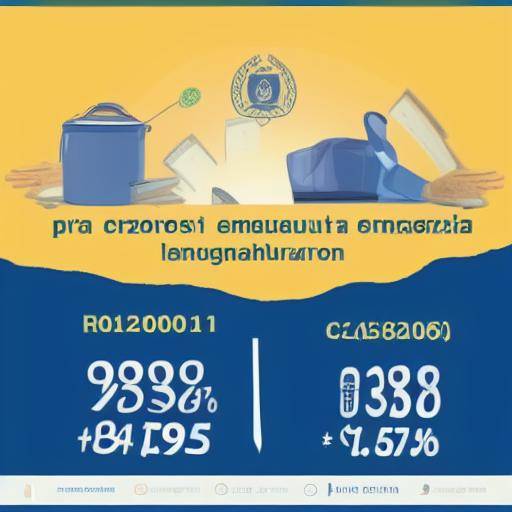
The financial world is a place of constant change and challenges, and having a good credit score is essential for long-term financial well-being. In this article, we will explore in detail the importance of a good credit score, the discipline necessary to maintain it and the strategies to improve it. From its historical impact to its relevance in the modern era, we will thoroughly analyze how this rating affects our financial life, and how every decision we make can make a big difference in our future.
Introduction
With the constant flow of loans, mortgages and credit cards in our society, it is essential to understand how our credit rating affects our ability to access loans, interest rates, and in general our financial health. This becomes even more relevant in times of economic or personal crises, when having a good credit score can make the difference between financial stability and difficulty.
In this article, we will thoroughly explore the impact of credit ratings on our personal finances and offer advice to maintain a healthy rating and improve it if necessary.
Qualification and historical relevance
The credit rating, also known as a credit score, has existed prominently since the 1950s, when financial entities began to use it to assess the credit risk of borrowers. Since then, it has evolved significantly and has become a determining factor in the financial life of people.
At first, credit ratings were based on core credit reports. Today, credit rating agencies such as FICO or Experian use complex algorithms that take into account a wide range of factors, including payment history, credit usage, credit age, credit diversity and recent consultations.
In-depth analysis of credit rating
A high credit rating not only facilitates borrowing, but can also result in lower interest rates, which saves long-term money. On the other hand, a low rating can make it difficult to obtain financing or result in higher interest rates, which can lead to greater financial burden. Therefore, maintaining a good credit score is essential for sustainable financial well-being.
Financial discipline plays a crucial role in managing and maintaining a healthy qualification. Establishing a budget, paying bills on time, avoiding excessive indebtedness and reviewing the credit report regularly are key practices in maintaining a good long-term credit rating.
Strategies to improve credit score
If the current credit rating is not optimal, there are effective strategies to improve it. These include correcting errors in the credit report, resolving outstanding debts, using the credit in a responsible manner and not closing old credit accounts.
It is important to understand that improving credit rating is not an instant process, but requires patience, discipline and long-term commitment. However, the long-term benefits of an improved credit rating can be significant and have a positive impact on overall financial health.
Conclusions and FAQs
In conclusion, credit rating is a key instrument that influences many aspects of our financial life. Maintaining a healthy credit rating requires discipline, commitment and understanding of how the credit system works.
Frequently asked questions
How can a low credit rating affect my finances?
A low credit rating can result in higher interest rates, difficulty obtaining loans and even impacting on the possibility of renting a housing.
What is the best way to monitor my credit rating?
There are several credit reporting agencies that offer free reports and credit monitoring services. It is important to regularly review your credit report to detect possible errors or fraudulent activities.
How can I improve my credit rating if I have outstanding debts?
You can start by setting up a payment plan to settle outstanding debts, limit the use of credit and avoid new debts while working to improve your rating.
Is it possible to improve my credit rating quickly?
While improving credit rating takes time, adopting good financial practices, such as paying bills on time and maintaining low credit balances, may have a positive long-term impact.
Does the cancellation of a credit card affect my credit rating?
Cancellation of a credit card may affect the diversity of your credit and the average age of your accounts, which in turn may influence your credit rating.
What is the role of financial discipline in maintaining a good credit rating?
The financial discipline, which includes responsible management of credit, budgeting and regular monitoring of its finances, is critical to maintaining a good credit rating.
Are there services or tools that can help me optimize my credit rating?
Yes, there are services and tools, such as financial advisors and financial management applications, which can provide guidance and strategies to improve and maintain a healthy credit rating.
In conclusion
A good credit score is essential for long-term financial well-being. Discipline in financial management and strategies to improve credit ratings can make a big difference in the ability to access favorable loans and lower interest rates. By understanding the importance of credit rating and maintaining sound financial practices, individuals can ensure greater stability and economic prosperity.
In short, credit rating is a vital tool that affects many aspects of our financial life. Maintaining a healthy rating requires discipline, commitment and understanding of how the credit system works. With due attention and effort, it is possible to improve and maintain a healthy credit rating that benefits our long-term finances.
By understanding the importance of credit rating and adopting sound financial practices, anyone can achieve greater stability and economic prosperity. Do not underestimate the positive impact that a good credit score may have on your financial well-being!






















































